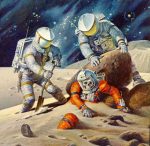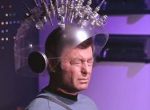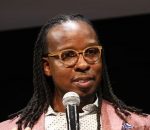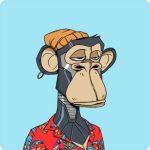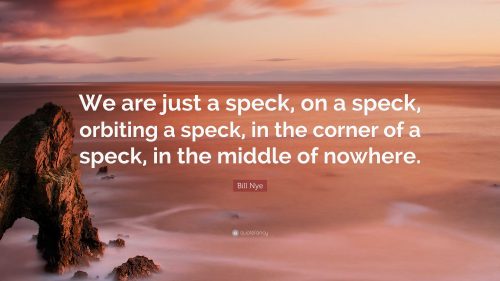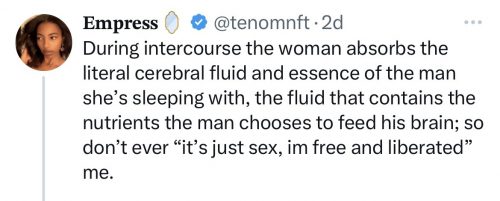I can think of lots of candidates for the worst job humans could do. Commercial fishing is incredibly dangerous, and requires exhausting effort in miserable conditions. Stoop labor, like what we compel immigrants to do, is going to mess your body up in the long term, with chronic pain in the back and limbs, as well as being degradingly disrespected. You probably have your own examples of work that you would never want to do. But in my opinion, there is one job that is the ultimate worst.
Human beings are not adapted to microgravity and high radiation. We’ve got enough data now on the consequences of long-term living in space (where long-term is a matter of months — no one is going to be able to live their lives in space).
Human bodies really can’t handle space. Spaceflight damages DNA, changes the microbiome, disrupts circadian rhythms, impairs vision, increases the risk of cancer, causes muscle and bone loss, inhibits the immune system, weakens the heart, and shifts fluids toward the head, which may be pathological for the brain over the long term—among other things.
It’s a devastating combination of effects with long-term consequences. A short hop into space, like billionaires like to play at, is one thing, but staying up their long enough for your physiology to try to adapt is another. It’s a long gamble in which you try to determine which systems fuck up first.
She also wants to figure out how to help astronauts’ faltering immune systems, which look older and have a harder time repairing tissue damage than they should after spending time in space. “The immune system is aging quite fast in microgravity,” Schrepfer says. She sends biological samples from young, healthy people on Earth up to orbit on tissue chips and tracks how they degrade.
Vision and bone problems are also among the more serious side effects. When astronauts spend a month or more in space, their eyeballs flatten, one aspect of a condition called spaceflight-associated neuro-ocular syndrome, which can cause long-lasting damage to eyesight. Bones and muscles are built for life on Earth, which involves the ever present pull of gravity. The work the body does against gravity to stay upright and move around keeps muscles from atrophying and stimulates bone growth. In space, without a force to push against, astronauts can experience bone loss that outpaces bone growth, and their muscles shrink. That’s why they must do hours of exercise every day, using specialized equipment that helps to simulate some of the forces their anatomy would feel on the ground—and even this training doesn’t fully alleviate the loss.
Perhaps the most significant concern about bodies in space, though, is radiation, something that is manageable for today’s astronauts flying in low-Earth orbit but would be a bigger deal for people traveling farther and for longer. Some of it comes from the sun, which spews naked protons that can damage DNA, particularly during solar storms. “[That] could make you very, very sick and give you acute radiation syndrome,” says Dorit Donoviel, a professor at the Baylor College of Medicine and director of the Translational Research Institute for Space Health (TRISH).
Then there are the big questions.
And an even simpler ethical question is, “Should we actually send people on these sorts of things?” Green says. Aside from incurring significant risks of cancer and overall body deterioration, astronauts aiming to settle another world have a sizable chance of losing their lives. Even if they do live, there are issues with what kind of an existence they might have. “It’s one thing just to survive,” Green says. “But it’s another thing to actually enjoy your life. Is Mars going to be the equivalent of torture?”
Yes.
Wow, it’s always nice to see a grand ethical question that can be answered so easily.
But is the pioneer way of life virtuous? I don’t think so. We have our own on-planet example of the American westward expansion, which was not at all about heroic, noble adventurers pushing back the foreskin of the wilderness. It was all about colonizers ripping up the environment, killing any people who stood in the way (at least we don’t have to worry about that in space), and suffering hellishly. I think you need to be a psychopath to want this way of life.
On this question, science-fiction scholar Gary Westfahl casts doubt on space travel’s inherent value. In his vast analyses of sci-fi, he has come to view the logic and drive of the enterprise as faulty. “I inevitably encountered the same argument: space travel represents humanity’s destiny,” he says of the impetus for writing his essay “The Case against Space.” Space explorers are often portrayed as braver and better than those who remain on their home planet: they’re the ones pushing civilization forward. “Philosophically, I objected to the proposition that explorers into unknown realms represented the best and brightest of humanity; that progress could be achieved only by boldly venturing into unknown territories,” Westfahl says. After all, a lot of smart and productive people (not to mention a lot of happy and stable people) don’t spend their lives on the lam. “Clearly, history demonstrates no correlation between travel and virtue,” he writes. “The history of our species powerfully suggests that progress will come from continued stable life on Earth, and that a vast new program of travel into space will lead to a new period of human stagnation,” he concludes ominously.
The article also talks about the Biosphere studies, which is a cartoon version of space exploration. It’s on Earth, so no peculiar gravity regimes or bombardments by radiation, and they’re swimming in plentiful air and water, so all they’re really testing is the human psychological response to prolonged isolation. It messes people up.
Kowalski’s talk at the Analog Astronaut Conference at Biosphere 2 was called “Only Eight Months.” The goal of those eight months was to study the medical and psychological effects of isolation. She and her teammates regularly provided blood, feces and skin samples so researchers could learn about their stress levels, metabolic function and immunological changes. Researchers also had them take psychological tests, sussing out their perception of time, changes in cognitive abilities and shifts in interpersonal interactions. Inside they had to eat like astronauts would, guzzling tubes of Sicilian pizza gel and burger gel. Kowalski would squeeze them into rehydrated soup to make meals heartier. Via their greenhouse, they got about a bowl of salad between the six of them every three weeks.
Kowalski missed freedom and food and friends, of course. But the real struggle came with her return to the real world once the isolation was over: “reentry, not to the atmosphere but to the planet,” she told the conference audience. She didn’t remember how to go about having friends, hobbies or a job and had trouble dealing with requests coming from lots of sources instead of just mission control. In the Q&A period after the talk, Tara Sweeney, a geologist in the audience, thanked Kowalski for talking about that part of the experience. Sweeney had just returned from a long stay in Antarctica and also didn’t quite know how to reintegrate into life in a more hospitable place. They had both missed “Earth,” the real world. But it was hard to come back.
These effects were reported at a conference of space enthusiasts. You can guess how they responded.
Still, the Analog Astronaut Conference crowd remained optimistic. “Where do we go from here?” conference founder and actual astronaut Sian Proctor asked at one point. On cue, the audience members pointed upward and said, “To the moon!”
I think maybe the real psychopaths aren’t the extreme loners who go out into the dangerous frontier, but the well-off people who send them there.

